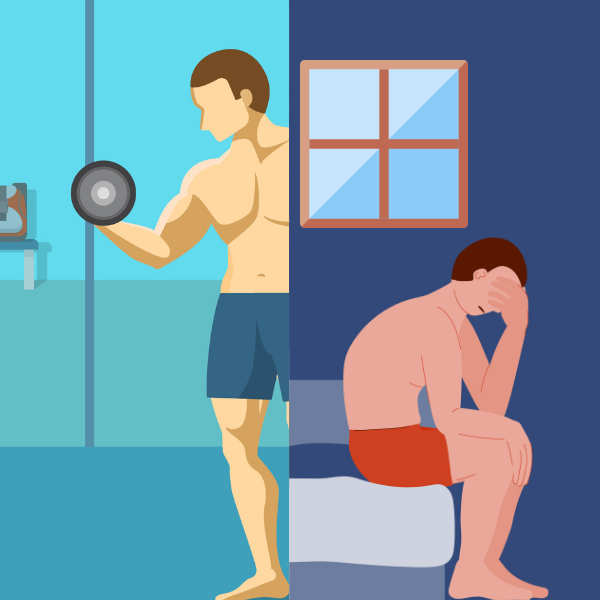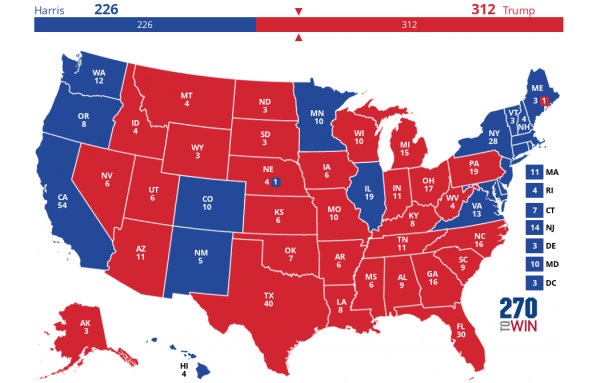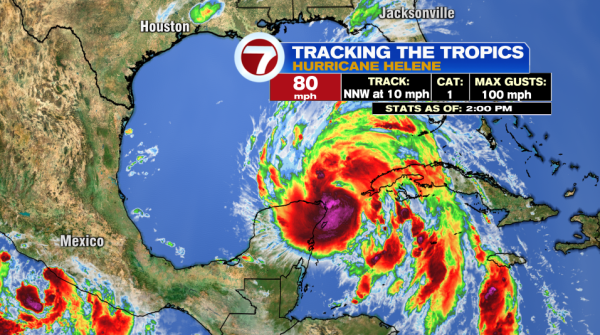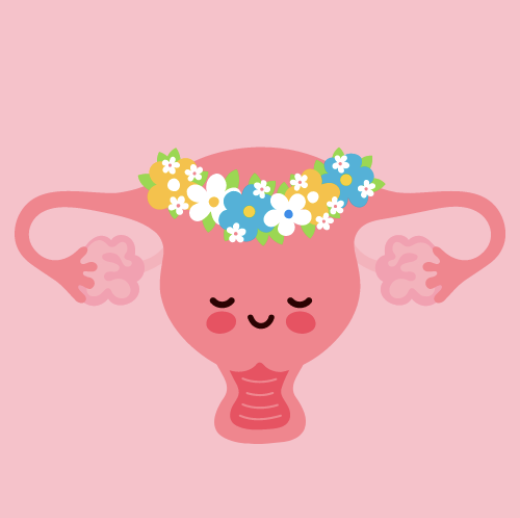Eating Disorders In Men: Smashing Toxic Masculinity

Studies have shown that while women are urged to seek help and speak out, men experience shame about their eating disorders and are more likely to receive a misdiagnosis or no diagnosis at all.
When most people think of eating disorders, females often come to mind. The assumption that only women experience eating disorders is beginning to hold less and less truth.
One in three people with eating disorders are male, and the percentage of men hospitalized for eating disorder-related illnesses increased by 53% from 1999 to 2009, according to NEDA.
So why don’t we concentrate on eating disorders in men just as much as we do in women? Is it just the impression the media wants us to have?
It’s likely that the lack of media attention given to males and eating disorders is due to how few men actually talk about them. Women with eating problems are frequently seen posting about their experiences on social media. Men don’t typically do this, despite the fact that they suffer just as much statistically.
Given, there are certain men who are self-assured about their difficulties and feel comfortable asking for assistance or speaking out about them. However, it is clear that they do not speak for the majority. Everything comes full round to the subject of toxic masculinity.
According to Eating Disorder Hope, men are expected by society to be capable, strong, and in charge. This depiction of masculinity has been carried through society since the beginning of time through countless patriarchal systems.
On social media, we frequently come across a wide variety of creators that don’t look like us. We are aware of what to anticipate before we read the comments. The creator is chastised if they are “too skinny” or “too fat”, and when someone with a similar body shape reads these comments, it can be extremely demoralizing and cause deeper issues.
Both female and male content creators experience this, but girls are the ones who are primarily focused on. Even by looking at studies online, it is clear that the majority of eating disorders that are influenced by social media (which is a lot) affect girls. The data about boys is scarce.
Social media thus plays a significant role in eating disorders. What else? Other factors include depressive disorders, bullying, low self-esteem, and our loved ones’ bad eating patterns (For instance, a close friend or relative).
The list goes on, but who is to claim that only females experience these things? Returning to the male stereotypes, research has shown that men’s eating issues begin with excessive exercise. This makes sense given that toxic masculinity puts a lot of emphasis on the need for strength. NEDA also says, “The sexual objectification of men and internalization of media images predicts drive for muscularity.”
“The desire for increased musculature is not uncommon, and it crosses age groups. 25% of normal weight males perceive themselves to be underweight and 90% of teenage boys exercised with the goal of bulking up.”
As the symptoms of an eating disorder progress, men are less likely to speak out on them.
Eating Disorder Hope says “Traditional stereotypes of men as invulnerable can prevent men from acknowledging an eating disorder for fear of being seen as an inadequate man.”
Studies have shown that while women are urged to seek help and speak out, men experience shame about their eating disorders and are more likely to receive a misdiagnosis or no diagnosis at all. NEDA also made a point to say, “A gender-sensitive approach with recognition of different needs and dynamics for males is critical in effective treatment.”
What can we do, then? It’s time to make a change because our society does not place enough emphasis on this issue. But how? It will be challenging because these are concepts that our society has long held.
Smashing the idea of toxic masculinity is where it all begins. Men should stop striving to be masculine and start learning to be a little more vulnerable, and both men and women should encourage this in the men around them. Additionally, we can all be more cautious about what we say on social media.
Even though it sounds cliche, refrain from commenting on someone else’s social media post if you don’t have anything nice to say about it. Societal influences have shown to have the biggest effect on men and their idea of masculinity.
Women aren’t the only ones with emotions and it’s important for men to feel like they have a safe space in society. So, keep it to yourself- this alone could benefit more people than you think.









